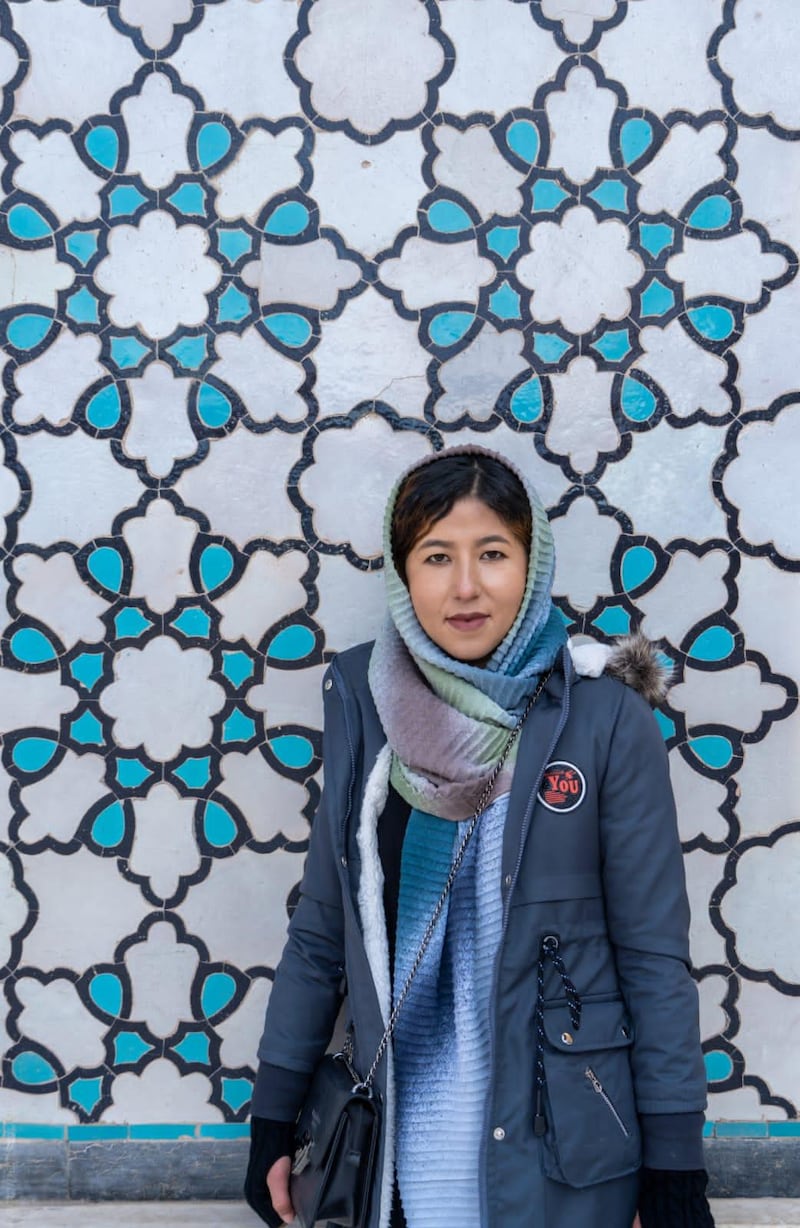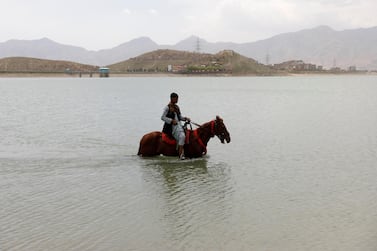“When I was 8 years old, girls from my province weren’t allowed to go to school. I was this little shepherd girl. I would run after sheep and cows, hiking with them in the mountains. It brought me closer to nature, and it was the first time I ever guided someone,” says 22-year-old Fatima Haidari, who is believed to be the first female tour guide in Afghanistan.
As a guide for Untamed Borders, a company that specialises in trips to less-trodden parts of the world, Haidari has hosted eight foreign travel groups since the beginning of 2020. While her work has been affected by the pandemic, she has received guests as recently as March and April, and hopes to welcome another group soon.
It was only last year that Haidari learnt that being a tour guide was an actual job.
“I didn’t know it was a profession. I didn’t know an Afghan woman like myself could do it,” she says, speaking over the phone from her home in Herat, Afghanistan, 822 km from the capital Kabul.
“Now I’m guiding foreign travellers across my province, showing them heritage sites and educating them about our history. I tell them about local food, and we eat together, sharing our stories.”

Haidari is the youngest daughter in a family of seven children. She was born in a village in Afghanistan's Ghor province, one of the country’s poorest regions, prone to Taliban attacks. Here, girls have little access to education. According to Unicef, about 3.7 million children don’t go to school in Afghanistan, and 60 per cent of them are girls. While over 55 per cent of Afghan men are literate, the female literacy rate is only 29.81 per cent, one of the lowest in the world.
Haidari tells me it was forbidden for most girls to go to school in her community, as in many parts of Afghanistan. But she forced her family to allow her, and would practice writing on sand, while learning basic language skills.
Later, her family moved to Herat, Afghanistan’s third-largest city.
“[In Herat], I saw people my age going to school. They wore beautiful uniforms. I wanted to wear them. I wanted to go to school like them,” she says.
But Haidari’s parents couldn’t afford her education. And her father, who owned a small shop in the town, couldn’t understand the value of education.
“No one in my family knows how to read or write. They never went to school. My two [elder] sisters were married off before they turned 15. My parents found men for me, but I refused and insisted that I didn't want to get married,” she tells me. “I didn’t want to live like my sisters. I wanted to go to school.”
When she couldn’t find the money for school, she started teaching herself at home, while running to a nearby hill with her father’s old radio to tune into English news. Later, she started making crafts to pay school fees.
“My mother took them to local shops in the town and sold them for me,” she says, smiling fondly, and thanking her mother for supporting her.
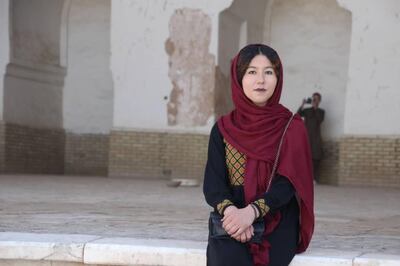
With the income she made from her crafts, Haidari was able to join school, and continue her education in an English-medium institute in Herat run by a foreign non-profit. She then passed the entrance exam at Herat University to pursue a degree in journalism and mass communication, where she's now studying.
Meanwhile, she opened a Facebook account and searched for information about Afghanistan. While there was news about terror and conflict, there was nothing about the sights, places and people she grew up seeing. Haidari made Facebook her blog, writing a paragraph each day about the places around her. Soon, people from across the world were reading her posts and becoming her online friends.
Early last year, one of her American Facebook friends reached out to her.
“He was visiting Herat, and asked me if I could show them around,” she says. “I thought, why not?”
Impressed by how Haidari guided them, her knowledge and communication skills, the American traveller recommended her to Untamed Borders.
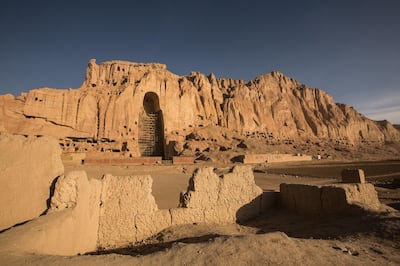
As founder of Untamed Borders, one of the few travel companies organising tours to Afghanistan, James Willcox believes the company has a special responsibility to set the right tone for tourism.
“One of the ways to do so is by ensuring we employ as diverse a range of people as possible, including women," he says. "We want to offer equal opportunity, training and employment to women, to inspire and pave the way for future generations.
“Working as a tour guide not only provides financial independence but also language and leadership skills too," adds Willcox, who decided to employ Haidari.
But Haidari soon faced a series of challenges at Untamed Borders.
“My father told me that it’s dangerous for women to work and I should get married like my sisters,” she says. “When I guide foreigners, some people would tell me that I should be ashamed for walking with unknown men.”
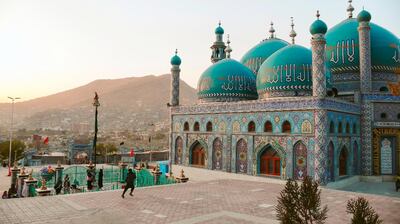
Haidari isn’t alone. For many women in Afghanistan, movement and access to public spaces is limited. While World Bank data shows that only 22 per cent of Afghan women participate in the labour force, Kanika Gupta, a multimedia journalist based in Delhi who has travelled solo in Afghanistan, says that on most occasions, she was the only woman in a sea of men.
“As I had expected, it was difficult and scary at first, because women don't normally step out without being accompanied by a man in Afghanistan,” she says.
Gupta says that while it’s challenging to travel in Afghanistan, the country has so much to offer.
“Natural landscapes and the hospitality of the people will completely change the way you look at this country,” she says. “But I do not recommend travelling here unless you know locals who can help you get by. I feel that women travellers [like myself] would feel very comfortable to do local sightseeing with another woman [like Haidari].”
Despite the hurdles she faces, Haidari says that she has learnt to only focus on achieving her dreams: “I feel empowered now. I love guiding tourists. I love listening to their stories, learning about their cultures and different places in the world.”
Apart from being a tour guide, Haidari hosts a radio show, where she interviews remarkable Afghani women, while also running a volunteer teacher-group with 10 other women to educate young girls.
“When I teach them, I talk to them about my experience as a tour guide. They tell me I give them hope,” she says, explaining how 41 girls recently graduated from their class. “They have big dreams. All of them are doing something. They are working towards achieving their dreams.”
While Haidari couldn’t be happier following a career many Afghan women couldn’t do, she doesn't want to be the last female tour guide from Afghanistan.
“It’s sad that there’s only one female tour guide. Afghan girls are burning the flames of their dreams. I want to return to my native province Ghor and start an institution to train women to become tour guides,” she says.
Before we end our conversation, I ask her if she has other dreams.
“Travelling to Tibet,” she says with a laughs. “I want to lead adventure tours, skateboard and cycle in the Bamiyan,” she tells me, explaining that in Herat women aren’t allowed to run, exercise or ride bicycles.
“I hope that there comes a day Afghan girls aren’t limited to follow their passions, that their dreams aren’t just dreams anymore and they are allowed to chase them.”
